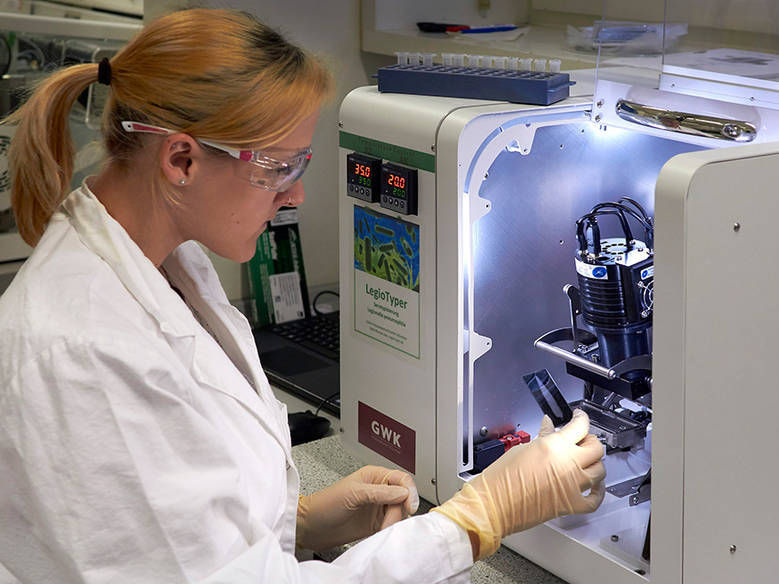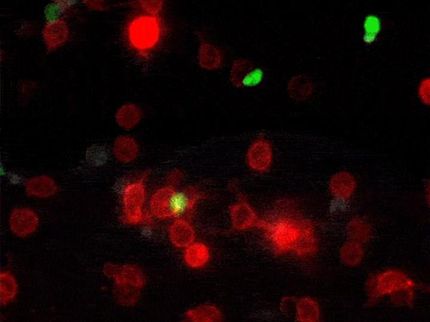Implant-based cancer vaccine is first to eliminate tumors in mice
New approach reprograms the mammalian immune system to attack tumors body-wide
A cancer vaccine carried into the body on a carefully engineered, fingernail-sized implant is the first to successfully eliminate tumors in mammals, scientists report in Science Translational Medicine. The new approach, pioneered by bioengineers and immunologists at Harvard University, uses plastic disks impregnated with tumor-specific antigens and implanted under the skin to reprogram the mammalian immune system to attack tumors. The new paper describes the use of such implants to eradicate melanoma tumors in mice.
"This work shows the power of applying engineering approaches to immunology," says David J. Mooney, the Robert P. Pinkas Family Professor of Bioengineering in Harvard's School of Engineering and Applied Sciences and Wyss Institute for Biologically Inspired Engineering. "By marrying engineering and immunology through this collaboration with Glenn Dranoff at the Dana-Farber Cancer Institute, we've taken a major step toward the design of effective cancer vaccines."
Most cancer cells easily skirt the immune system, which operates by recognizing and attacking invaders from outside the body. The approach developed by Mooney's group redirects the immune system to target tumors, and appears both more effective and less cumbersome than other cancer vaccines currently in clinical trials.
Conventional cancer vaccinations remove immune cells from the body, reprogram them to attack malignant tissues, and return them to the body. However, more than 90 percent of reinjected cells have died before having any effect in experiments. The slender implants developed by Mooney's group are 8.5 millimeters in diameter and made of an FDA-approved biodegradable polymer. Ninety percent air, the disks are highly permeable to immune cells and release cytokines, powerful recruiters of immune-system messengers called dendritic cells. These cells enter an implant's pores, where they are exposed to antigens specific to the type of tumor being targeted. The dendritic cells then report to nearby lymph nodes, where they direct the immune system's T cells to hunt down and kill tumor cells.
The technique may have powerful advantages over surgery and chemotherapy, and may also be useful in combination with existing therapies. It only targets tumor cells, avoiding collateral damage elsewhere in the body. And, much as an immune response to a bacterium or virus generates long-term resistance, researchers anticipate cancer vaccines will generate permanent and body-wide resistance against cancerous cells, providing durable protection against relapse.
Mooney says the new approach's strength lies in its ability to simultaneously regulate the two arms of the human immune system: one that destroys foreign material and one that protects tissue native to the human body. The implant-based vaccine recruits several types of dendritic cells that direct destructive immune responses, creating an especially potent anti-tumor response.
Topics
Organizations
Other news from the department science

Get the life science industry in your inbox
By submitting this form you agree that LUMITOS AG will send you the newsletter(s) selected above by email. Your data will not be passed on to third parties. Your data will be stored and processed in accordance with our data protection regulations. LUMITOS may contact you by email for the purpose of advertising or market and opinion surveys. You can revoke your consent at any time without giving reasons to LUMITOS AG, Ernst-Augustin-Str. 2, 12489 Berlin, Germany or by e-mail at revoke@lumitos.com with effect for the future. In addition, each email contains a link to unsubscribe from the corresponding newsletter.
Most read news
More news from our other portals
Last viewed contents
Eucalyptol

Stem cells do not (only) play dice - Stem cells work as a team and do not leave their fate to pure chance



















































